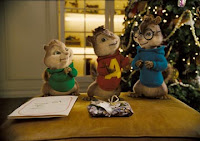Kate Wicker is a wife, at-home mom and writer. When she's not working on several "almost finished novels and short stories, she dabbles in the personal essay market, Christian parenting and health writing. Some of her credits include Atlanta Parent, Faith & Family, Inside Catholic, Pregnancy magazine, and Woman's Day.When I graduated with a journalism degree in 2000, I thought literary writing was the only thing worth doing. I wanted my writing to enlighten, to touch people deeply and maybe even to change the world one word at a time. I was also in my early twenties, so of course I knew absolutely everything. Now several years later I know otherwise. Today I'm a successful freelancer, but how I became one was not as idyllic as I had supposed. Everything I write isn't artsy, nor am I up for a Pulitzer Prize, but my words are being published and I'm getting paid to do what I love (yippee!), and all you other dreamy idealists can too, but you may have to readjust the way you look at your writing.
Here are some lessons that have helped a pensive scribe like myself along the way:
Be sneaky if you want to enlighten. In most writing markets, you can choose to edify your readers in which case a lot of them will stop reading, or you can choose to talk to them on their own level, snag their interest and marble in a surprise here and there to intrigue them and make a handful of them think further. It's sort of "stealth edification." I learned this lesson the hard way. I landed my first job as a writer in the marketing department of an academic medical center. I hated writing generic health articles like "how to lower your cholesterol," so I desperately tried to write more substantive and creative pieces...that is until my boss told me I needed to stick to the basic facts and write at a middle school level. At first I was appalled, but then I realized she was right. The audience I was writing for wanted to sink their teeth into quick, healthy bites of information. They weren't looking to leisurely sit down and read Faulkerian sentences or Proust prose.
Learn to let go. I used to hate to cut anything from my writing. I was so attached to my words that slashing them was like severing a limb. However, I learned that it was easier for me to edit my work than for it to either not sell or for an editor to change it so much that it didn't even seem like it was mine any longer. It may hurt a little at first, but take a deep breath and let go of any words and sentences that aren't absolutely necessary, especially if you have a strict word count to meet (750 words means 750 words). If you're fond of a particular image ("the trees reached up to the sky like gnarled hands"), then jot it down in a notebook and save it for another piece. Sometimes a sentence or idea may not work for a particular publication (or audience), but it may be perfect for something else.
Never lose sight of why you're writing. Do you have a good idea? Is there a point of view you want to promote? Do you want to convince someone to think as you do? Do you want to comfort someone, inspire them, reassure them, horrify them, urge them into action or maybe make them laugh? Whatever it is that you (and the editors - you can never lose sight of their needs) want to accomplish, use the language that will get the job done. That's all that matters. Anything else is like contemplating your navel.
Finally, don't take yourself too seriously. Sometimes I get in these ridiculously contemplative moods. I might fill a page with a wordy description of one, stinkin' leaf or I might ponder Communism, vegetarianism, antidisestablishmentarianism or some other 'ism. When I'm writing about it, it all seems to make sense. Yet, sometimes I have to take a step back and say, "Whoa, wait a minute. What is this? Will others really enjoy reading this?" If the answer is no, then it's time to move on. If the answer is yes or even maybe, then I can try to sell it. If it sells, hooray! Bring out the champagne. If it doesn't, que sera, sera. There's always another market, another editor looking for the right query, another day, another leaf and another 'ism.
At the end of the day, if I'm not enjoying what I do and am sweating over every single word or rejection, then it's not worth it. There are too many writers out there who end up sequestered in a little cave with a row of empty gin-and-tonics with an "almost finished" novel and queries that never made it to the outbox. Even if I can't always write exactly what or how I want, I don't intend to join that society anytime soon. Neither should you.
She blogs at
http://www.katewicker.com/.--
This article was orginally published at
WritersWeekly.com. Thanks Kate!












